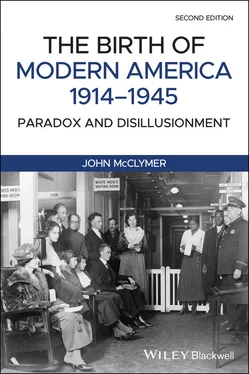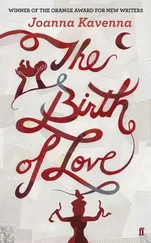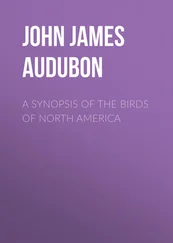Editorial Office 111 River Street, Hoboken, NJ 07030, USA
For details of our global editorial offices, customer services, and more information about Wiley products visit us at www.wiley.com.
Wiley also publishes its books in a variety of electronic formats and by print‐on‐demand. Some content that appears in standard print versions of this book may not be available in other formats.
Limit of Liability/Disclaimer of Warranty While the publisher and authors have used their best efforts in preparing this work, they make no representations or warranties with respect to the accuracy or completeness of the contents of this work and specifically disclaim all warranties, including without limitation any implied warranties of merchantability or fitness for a particular purpose. No warranty may be created or extended by sales representatives, written sales materials or promotional statements for this work. The fact that an organization, website, or product is referred to in this work as a citation and/or potential source of further information does not mean that the publisher and authors endorse the information or services the organization, website, or product may provide or recommendations it may make. This work is sold with the understanding that the publisher is not engaged in rendering professional services. The advice and strategies contained herein may not be suitable for your situation. You should consult with a specialist where appropriate. Further, readers should be aware that websites listed in this work may have changed or disappeared between when this work was written and when it is read. Neither the publisher nor authors shall be liable for any loss of profit or any other commercial damages, including but not limited to special, incidental, consequential, or other damages.
Library of Congress Cataloging‐in‐Publication Data
Names: McClymer, John F., author.
Title: The birth of modern America, 1914–1945 : paradox and disillusionment / John McClymer.
Description: Second edition. | Hoboken, NJ : Wiley‐Blackwell, 2021. | Includes index.
Identifiers: LCCN 2020024692 (print) | LCCN 2020024693 (ebook) | ISBN 9781119081531 (paperback) | ISBN 9781119081494 (adobe pdf) | ISBN 9781119081449 (epub)
Subjects: LCSH: United States–Civilization–20th century. | United States–History–1919–1933. | United States–History–1933–1945.
Classification: LCC E169.1 .M4972 2021 (print) | LCC E169.1 (ebook) | DDC 973.91–dc23
LC record available at https://lccn.loc.gov/2020024692LC ebook record available at https://lccn.loc.gov/2020024693
Cover Design: Wiley
Cover Image: © Everett Historical/Shutterstock
John F. McClymerhas written several books and scores of scholarly articles on subjects ranging from the rise of social engineering during the Progressive Era to the movement to Americanize immigrants during and after World War I to images of women in American popular culture. An early adopter of new media he authored the American Historical Association’s Guide to Teaching and Learning with New Media . The recipient of numerous grants for both research and curricular development, he has helped to design several websites cited for excellence by the National Endowment for the Humanities. Now retired, he taught at a small liberal arts college in New England for almost fifty years.
Introduction Modernity and Its Discontents: A Frame for Understanding Twentieth-Century America
The blow that hurled the modern world on its course of self‐destruction was the Great War of 1914–18. — Jacques Barzun, From Dawn to Decadence (2001), 683
Modernity is a collective noun that subsumes a variety of changes. The nature, pace, and consequences of modernization are the central preoccupations of this book.
Let us start with mass production, including of agricultural goods. This shifted the economy from one dependent upon finding ways of increasing output (supply) to one focused upon increasing consumption (demand). Economic abundance, however unevenly distributed, made modernity both possible and inescapable. The underlying challenge was to distribute wealth sufficiently broadly to permit continuously increasing levels of consumption. The failure to achieve this broad distribution meant that millions of Americans did not participate in the prosperity of the 1920s. It also meant that prosperity would not last.
As ever‐increasing levels of consumption became normative, traditional values became suspect. Seeking pleasure, for example, became enshrined among approved motives. Self‐denial became old‐fashioned and, therefore, passé. Traditional notions of virtue had rested upon self‐denial. Consider the “seven deadly sins.” Each is a legitimate activity taken to an extreme. Satisfying hunger is necessary; gluttony is a sin. The new capitalism of the post‐World War I (WWI) years required self‐indulgence, not self‐denial.
As the consumption ethos of always acquiring more undermined Judeo‐Christian values, science and other empirical disciplines undermined traditional understandings of scripture. This is most visible in the Scopes Trial over the teaching of evolution in the public schools in Tennessee. Concern for preserving these traditional understandings, what revivalist Billy Sunday called “Old Time Religion,” underlaid the fight over the “fundamentals” in Protestant churches in the 1910s, 1920s, and 1930s. It continues to fuel the “culture wars” of today.
Previously marginalized groups – women, blacks, Catholics, Jews, and then others – insisted on full participation in all aspects of this rapidly changing society. They encountered fierce resistance, and their success was uneven. But the general trajectory of change was apparent. Even as anti‐immigrant, anti‐Catholic, and anti‐Semitic hostilities intensified during and after the war, the United States became an increasingly diverse society. And popular culture increasingly reflected that diversity.
Government needed to respond to the new era. How and to what extent it should act became the questions of twentieth‐ and twenty‐first‐century American politics.
Change can be cumulative, as with urbanization or the emergence of a consumer ethos in which the pursuit of pleasure is a legitimate, even respectable, motive. Historians looking for specific origins invariably disagree. Did the 1920s usher in a new set of attitudes toward sexuality? Or was there a pre‐war sexual revolution? We cannot easily answer such questions. What we can identify more readily are those historical moments when people realize that something has changed decisively. For Americans, as for people around the world, the watershed event that announced the new era was the Great War.
In the spring of 1914, the “urgent demands” of the nineteenth century, to use Barzun’s phrase for those issues that every thinking person had to confront in one way or another, seemingly had been met in the United States and western Europe. Countries had worked out ways of combining universal manhood suffrage with private property rights. They had adopted at least rudimentary forms of factory safety legislation, mandatory public schooling, public health measures, and other elements of the welfare state. This was most fully articulated in Germany, the nation to which American “progressives” most frequently turned for models. Western Europeans and Americans in general shared the complacent view that they had solved the basic problems that had confounded humanity from the beginning of time.
Their consensus ran along the following lines: Government required some sort of parliament or congress. Citizens deserved basic civil liberties, such as free speech, and “entitlements,” i.e., the sorts of welfare measures, such as unemployment insurance and old‐age pensions, that Bismarck had introduced in Germany. The economy required a capitalist market but one subject to some regulation along the lines of the Pure Food and Drug Act. Religion should be some benevolent form of Christianity, although non‐Christians should be allowed to practice their own religions. Science would continue to fuel technological innovations that, in turn, would continue to turn out greater and ever greater amounts of everything from food to automobiles to as yet undreamed of new products. Medicine, finally on a scientific basis, would continue to conquer disease. American and European empires testified to the overall superiority of western civilization. As the British economist John Maynard Keynes summed up the pre‐war West:
Читать дальше












